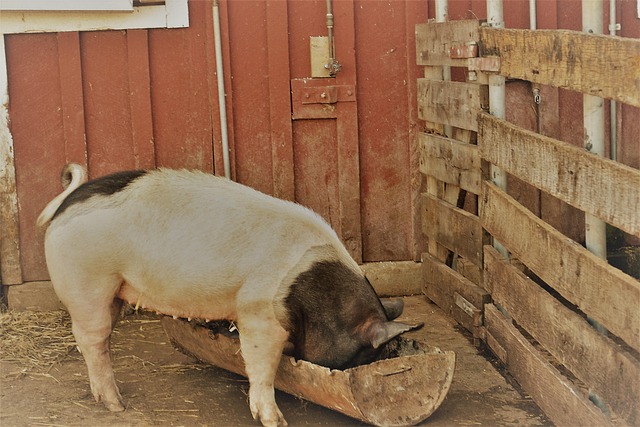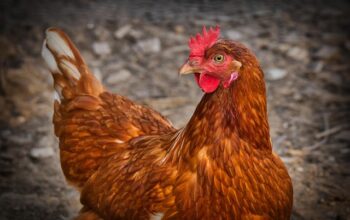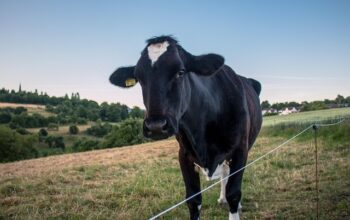Ontario's farm fencing regulations prioritize safety and order, dictating material types, height, and placement. Durable materials like steel and vinyl offer long-lasting solutions against extreme weather and wildlife for Fence for Farms ON. Customized designs following natural topography enhance functionality and reduce maintenance while strategic fence placement manages livestock and equipment access. Electric, high-tensile, and PVC fences provide cost-effective, secure options for protecting Ontario farmland.
In Ontario, a robust farm fence isn’t just an accessory; it’s a necessity. Protecting your land and livestock from wildlife and neighbours alike requires careful consideration. This guide delves into seven key aspects of farm fencing in Ontario, including navigating regulatory landscape, choosing durable materials, designing fences that fit unique terrain, and cost-effective solutions without compromising security. By the end, you’ll be equipped to erect a fence that serves both function and style on your ON farm.
Understanding Ontario's Farm Fencing Regulations
Ontario has specific regulations regarding farm fencing, designed to maintain safety and order on agricultural properties. Before installing or replacing any fence, it’s crucial to understand these rules to ensure compliance and avoid potential issues. These regulations cover various aspects, including material types, height restrictions, and placement considerations for different types of fences.
For instance, rural residential properties often require a minimum height of 6 feet (1.8 meters) for fences bordering agricultural land, while other areas may have specific requirements. Additionally, certain fence styles, like chain link or wire mesh, might be preferred or restricted in specific regions to maintain visual lines of sight and facilitate wildlife movement. Understanding these regulations is the first step in selecting an appropriate fence for a farm in Ontario, ensuring both functional and legal compliance.
Material Options for Durable Farm Fencing
When it comes to choosing materials for farm fencing in Ontario, durability is a top priority given the harsh weather conditions and frequent wildlife encounters. Traditional options like wood have long been popular choices due to their aesthetic appeal and relative affordability. However, with time, wooden fences require regular maintenance and can be susceptible to rot, insect infestations, and storms. As such, many farmers are now opting for more durable materials that offer longer-lasting solutions for their fence for farms ON.
Steel and vinyl are two leading alternatives known for their resilience against the elements and pests. Steel fencing provides exceptional strength and longevity, but can be pricier and may require more complex installation processes. Vinyl, on the other hand, is cost-effective, easy to install, and offers a variety of styles suitable for different farm landscapes. Additionally, both materials are low-maintenance, ensuring your fence remains in top condition with minimal upkeep.
Designing Fences to Suit Farmland Topography
When designing fences for farms in Ontario, understanding the unique topography is a key consideration. Farmland often presents varied terrain, from rolling hills to flat plains, and incorporating this into fence placement and style is essential. Customized designs that take advantage of natural land contours can enhance both functionality and aesthetics. For instance, following the curve of a hill or utilizing elevated sections for drainage can prevent water accumulation and reduce maintenance needs.
Farming professionals in Ontario should also consider how the fence interacts with the surrounding landscape. Strategically placed fences can direct livestock movement, create designated grazing areas, and facilitate easier access for farm equipment. A well-designed fence system that considers topography and land use maximizes efficiency, ensuring a robust and adaptive barrier tailored to the specific needs of the Ontario farmland.
Cost-Effective Solutions for Farm Perimeter Security
Farming in Ontario benefits from robust and secure fencing solutions that provide both perimeter security and functional advantages. When it comes to cost-effective options, electric fences stand out as a popular choice among farmers. These low-cost, easy-to-install systems offer excellent protection against wildlife and unauthorized entry while being gentle on livestock.
Beyond traditional materials like wood or chain link, innovative designs and materials, such as high-tensile fencing or polyvinyl chloride (PVC), provide durable, long-lasting solutions. These options are not only economical but also require less maintenance compared to their counterparts, ensuring a sound investment for farm owners looking to secure their property in Ontario.
When considering a fence for farms in Ontario, it’s crucial to balance functionality, durability, and regulatory compliance. By understanding local laws, exploring robust material options, tailoring designs to your farmland’s topography, and exploring cost-effective solutions, you can enhance farm perimeter security while adhering to key agricultural guidelines. These seven considerations empower farmers to make informed decisions, ensuring their investments are both effective and compliant in Ontario’s dynamic farming landscape.




